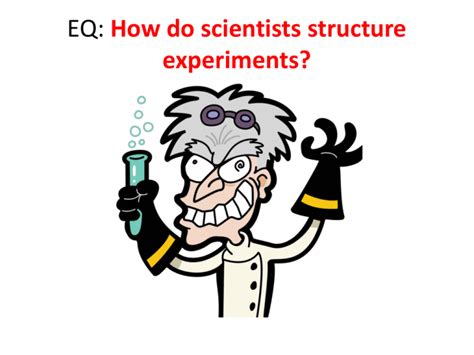Introduction

Experimentation is an essential component of AP Psychology. It allows researchers to investigate cause-and-effect relationships, test hypotheses, and gain a deeper understanding of human behavior. In the context of AP Psychology, an experiment typically involves manipulating an independent variable (the cause) to observe its effect on a dependent variable (the outcome).
Defining Experiment
An experiment is a controlled study in which the researcher manipulates one or more independent variables to observe their effects on one or more dependent variables. The researcher controls all other variables that could potentially influence the results of the experiment to ensure that the observed effects are due to the independent variable(s) being manipulated.
Key Elements of Experiment
1. Independent Variable: The variable that the researcher manipulates or changes. It is the cause or predictor variable that is expected to influence the dependent variable.
2. Dependent Variable: The variable that is measured or observed to assess the effects of the independent variable. It is the outcome or response variable that is expected to change as a result of the manipulation of the independent variable.
3. Control Group: A group of participants who do not receive the experimental treatment or manipulation. They serve as a baseline against which the experimental group is compared.
4. Experimental Group: A group of participants who receive the experimental treatment or manipulation. Their responses are compared to the control group to determine the effects of the independent variable.
5. Random Assignment: The process of assigning participants to experimental and control groups in a way that ensures that the groups are equivalent on all relevant variables except for the independent variable being manipulated.
Types of Experiments
1. Between-Subjects Design: Each participant is assigned to either the experimental or control group.
2. Within-Subjects Design: Each participant experiences both the experimental and control conditions.
Applications of Experiments
Experiments are used in AP Psychology to investigate a wide range of topics, including:
- Learning: How people acquire, retain, and apply knowledge and skills.
- Memory: How information is encoded, stored, and retrieved.
- Cognition: How people think, solve problems, and make decisions.
- Motivation: What drives people’s behavior, goals, and actions.
- Personality: The unique characteristics and traits that make each person an individual.
- Social Psychology: How people interact with each other and how social factors influence their behavior.
Benefits of Experiments
Experiments offer several benefits for researchers, including:
- Control: Experiments allow researchers to control variables that could potentially confound the results.
- Cause-and-Effect Relationships: Experiments can establish cause-and-effect relationships by manipulating the independent variable and observing its effects on the dependent variable.
- Objectivity: Experiments provide objective data that can be analyzed and interpreted without bias.
- Replication: Experiments can be replicated to confirm findings and ensure their validity.
Challenges in Experimentation
Conducting experiments can also present challenges, such as:
- Biased Results: Researchers must be careful to avoid introducing bias into their experiments.
- Ethical Concerns: Experiments involving human participants must be ethically sound and follow proper protocols.
- Contextual Effects: Researchers must consider the context in which the experiment is conducted, as it can influence the results.
- Replication Crisis: The replication crisis in psychology has raised concerns about the reliability and reproducibility of experimental findings.
Tips for Conducting Effective Experiments
1. Develop a Clear Hypothesis: Define the specific question you are investigating and the predicted outcomes.
2. Identify Independent and Dependent Variables: Clearly identify the variables you will be manipulating and measuring.
3. Randomly Assign Participants: Use random assignment to ensure that experimental and control groups are equivalent.
4. Control for Confounding Variables: Identify and control for variables that could interfere with the results.
5. Collect Reliable Data: Use valid and reliable methods to measure the dependent variable.
6. Analyze the Data Objectively: Use statistical tests to analyze the data and draw conclusions.
7. Replicate the Experiment: Conduct the experiment multiple times to confirm the findings.
8. Report the Results Accurately: Clearly describe the methods, results, and conclusions of the experiment.
Real-World Applications of Experiment AP Psychology
Experiments in AP Psychology have far-reaching applications, including:
1. Educational Psychology: Developing effective teaching strategies and curricula.
2. Clinical Psychology: Designing and evaluating treatments for mental health disorders.
3. Industrial-Organizational Psychology: Improving workplace productivity and satisfaction.
4. Social Policy: Informing government policies and programs that promote well-being.
Conclusion
Experimentation is a powerful tool for investigating human behavior and gaining a deeper understanding of the mind. By adhering to the principles of experimental design, researchers can conduct rigorous studies that provide valuable insights and have practical implications for society.
